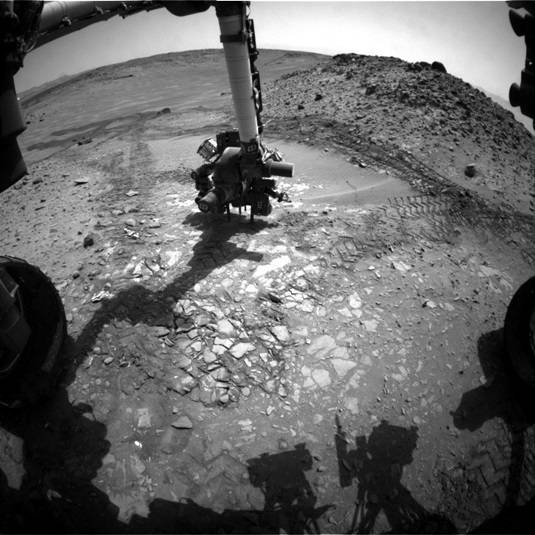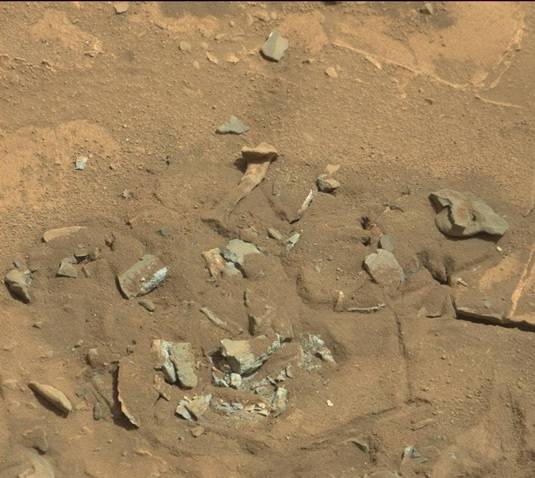This article is more than 1 year old
Rickety rock deemed unworthy of Curiosity's drill
NASA also hoses down Martian thighbone theorists
NASA's plans to conduct its fourth major drilling project have been called off after the proposed target, dubbed Bonanza King, proved unstable.

Site proves a bit too shaky for scanning
Last week the rover found the drilling site after detouring through the northeastern end of “Hidden Valley,” on its way from the landing site in Gale crater to the mission goal of Mount Sharp. The rover dusted off the drilling site but when it attempted to use the percussive drill on the rock face the object started shifting, leading the team to call off the attempt.
"We have decided that the rocks under consideration for drilling, based on the tests we did, are not good candidates for drilling," said Curiosity project manager Jim Erickson of NASA's Jet Propulsion Laboratory. "Instead of drilling here, we will resume driving toward Mount Sharp."
That may be harder than first thought however. The initial route has proved to be too sandy for the rover to manage, and since the nearest human rescue crew is down a gravity well and over 30 million miles away.
"After further analysis of the sand, Hidden Valley does not appear to be navigable with the desired degree of confidence," Erickson said. "We will use a route avoiding the worst of the sharp rocks as we drive slightly to the north of Hidden Valley."
NASA has also tried to put to rest the latest rumor about unexplained sightings by the rover. We've had the Martian flower and the doughnut, and last week Curiosity spotted an object that looked, to some at least, suspiciously like a vertebrate's thigh bone.

Relax, there's no fossilized thigh on Mars
The team running the rover took a long, hard look at the object and has concluded it is in fact just an unusually shaped rock. The mineral has most likely been shaped by wind erosion, or perhaps even worn by water.
"If life ever existed on Mars, scientists expect that it would be small simple life forms called microbes. Mars likely never had enough oxygen in its atmosphere and elsewhere to support more complex organisms. Thus, large fossils are not likely," the scientists concluded. ®
